By: Marshall Ramsey II
Chapter 1: Prelude To Perseus
It happened to be about the time that the Israelites were in Egypt as slaves (about 1600-1500 BC), before the birth of Moses, that two sons were born to Abas, King of Argos, and his wife Aglaia, daughter of one Mantineus, whose names were Akrisios, now spelled Acrisius, and Proitos, now spelled Proetus. These two brothers, as happens from time to time, fought with each other while yet in their mother's womb. Their behavior continued even into their adulthood; for when it came time to receive their inheritance, they strove against one another.
Acrisius won and drove his brother Proetus out of Argos. Being exiled, Proetus sought refuge with King Iobates, called Amphianax, in Lycia and eventually married his daughter Anteia, who is called Stheneboia. After a time Proetus was escorted back to Tiryns by his father-in-law's army and seized control of it, having been walled walled for him by the Kyklopes, whom we call Cyclopes. Acrisius, being frightened by the possibility of a new war with not only his brother but also the Lycian army and the Cyclopes, decided to make peace with Proetus. They decided to split their father's kingdom of Argeia between them, with Akrisios (Acrisius) becoming lord of Argos, and Proetus lord of Tyrins, which became the father of the Tyrrhenians.
Chapter 2: The Birth Of Perseus
Now it came to pass that Acrisius had married Eurydice, the daughter of King Lacedaimon and had a daughter named Danae. Although Acrisius loved Danae, his inability to produce sons bothered him, so he consults the oracle at Delphi, who tells him that a son born of his daughter would slay him.
King Acrisius began to panic. In order to keep his own life, yet not willing to kill his daughter, he built a prison for her made of brass. It was made underground with only one door and an open roof, although the reason for the open roof is a mystery.
While Danae was locked into this room, a devil had come to her in the form of Judah, the son of Israel and surrounded himself with golden light. This was done so that he might lie with Danae, being filled with lust for her. Their union resulted in Danae becoming pregnant with Perseus
It came to pass that after nine months, Danae gave birth to Perseus. When King Acrisius heard about it (the thing was kept from him at the first, that his daughter was pregnant), he straightway ordered them to be locked in a box and thrown into the sea.
Now Argos is a great way from Seriphos (which now is spelled Serifos), being approximately 90 miles by sea distant. As the box was sealed shut and no air could get in, Danae was sure that she and her newborn son would die. God, however, had other plans. As soon as Danae and Perseus were cast into the sea, the LORD Jehovah (Jehovah being the origin of the word Jove, and not the other way around); the LORD JEHOVAH caused a great wave to come up from the sea and speed Perseus and Danae to Serifos. It is for this reason that the LORD is falsely called Poseidon, because that he caused the great wave to come up and carry Perseus and his mother to safety.
A short while later, when Perseus and Danae's oxygen had almost run out, a fisherman by the name of Diktys (Dictys) happened to be on the shore of Serifos rinsing out his nets. It just so happened that Dictys saw the box that contained Perseus and Danae floating nearby and pulled it to land. Danae, weak from lack of oxygen, heard Dictys pulling the box ashore and began banging on the side of the box.
The box itself was built out of pine trees, which is good for making boats, and covered in pitch, which is the boiled sap of the pine tree. It is believed that the box was sealed with chains and the royal seal of Argos placed upon it so that all would know who cast the box into the sea, and who sealed the box. Dictys, when he heard Danae beating her fists against the side of the box, grabbed his hammer, broke the chains and seal, and opened the box.
Perseus and Danae were free. After the lid was removed from the box, Danae took in many great gulps of air. Looking upon her savior, Danae, after making sure Perseus was safe, threw her arms around Dictys and began sobbing with relief, thankful that both she and her child were delivered from death. Upon looking in the box and seeing young Perseus, Dictys picked him up and handed him to his mother, who embraced him very strongly and whispered comforting words to her newborn son.
After arriving at his home, Dictys set some food before Danae, who gratefully ate it. While Danae was eating, she relayed to Dictys the events leading up to her being found in the box: How that she was the daughter of King Acrisius of Argos and his wife Eurydice (who was the daughter of King Lacedaimon, father of the Lacedaemonians and grandson of Atlas); how that her father received a prophecy that a child born to her would kill him and how she was imprisoned for this; how that she had come to lay with the devil who called himself Zeus (she did not believe he was a god afterward, but did recognize that someone not human had lain with her), her pregnancy, the birth of Perseus, and her and Perseus being locked in the box and cast into the sea.
Dictys, upon hearing all this and realizing that she could never go home, offered to let Danae and Perseus live with him in his house. She accepted. However, still fearing her father, King Acrisius, she married him under the name Clymene in the hopes that her father would never find her and attempt to kill her and Perseus.
Over passage of time, Dictys and Danae fell in love and eventually married. Dictys, having grown fond of Perseus, adopted him and raised him as his own. Only Perseus, Dictys, and Danae knew the truth.
Chapter 3: Death of Medusa
Now the ruler of Seriphos was Polydectes, Dictys' brother. He had fallen in love with Danae, who was then known as Clymene, but was unable to lay with her, because Perseus, now a man, had sworn to kill anyone who attempted to lay with Danae while Dictys was locked up (King Polydectes had thrown Dictys in jail so that he might have sex with Danae.)
Polydectes, after many unfruitful months of trying to pursue Danae, decided to have Perseus killed. Not willing to do this himself, or unable, he made noise that he planned to marry Hippodameia, the daughter of Oinomaos, King of Pisa in Elis (Italy). As a dowry to her father, Polydectes requested horses from his friends and servants that he might use to pay for Hippodameia's hand.
Perseus, not having a horse to give, said he would give any other gift to the king, no matter what it was. This Perseus said thinking that Polydectes had given up his pursuit of his mother, not suspecting the treachery. Perseus said he would even give him the head of Medusa, whose real name was Keren-happuch
Keren-happuch was the daughter of Job (also called Phorcys), the great-grandson of Eber, the father of all Hebrews. Her husband was a member of the Gurage, a race of people descended from Magog, the son of Japheth. She lived on Erytheia, a large island in the Red Sea, between what is now Saudi Arabia and Eritrea (Eritrea is a variation of Erytheia.)
So at the advice of King Polydectes, Perseus booked passage to Egypt on a Phoenician ship that was heading to Egypt from Tyre. He then sought out three sisters named Enyo, Pephredo, and Deino, which were Anamim, priestesses of Horus.
It was rumored that they had only one eye and one tooth between them, however this is not the case. What happened is that the three women prophesied the same thing when they prophesied (they were known as prophetesses). The manner in which they did this was to hold up an amulet featuring the Eye of Horus, also called the 'all-seeing eye', to their foreheads, believing it to give them power to see into the future.
Upon finding them, Perseus tried to persuade them to tell him how to reach the Nymphai, which had items that he could use to kill Medusa. They refused. Perseus, knowing their manner of prophesying, and knowing that they would not prophesy without the medallion, took the medallion from them (for the three sisters were very old) and refused to give it back to them unless they told him what he wanted to know.
They relented, and offered to take Perseus to the Nymphai in exchange for returning the medallion to them.
After reaching the Nymphai, Perseus handed them back their 'eye' as he had promised. After talking with the Nymphai and telling them what he was going to do, the Nymphai gave Perseus sandals with natural rubber on them which would help him to run faster. They also gave Perseus food and new clothes in a bag to refresh himself on the way.
They also gave Perseus an ancestral helmet of Ham the son of Noah, who became known as Hades. Inasmuch as Egypt was called the underworld and Hades the god of the underworld, so it is that Ham, being Hades, became lord over Egypt after the great flood. This helmet, which was more of a suit used by special forces groups called a ghili, I think, was of a camouflage design which, when used in jungle warfare, would render the wearer invisible to his enemies while letting the wearer see what was happening around him.
Perseus left them and made his way to what is now called the Indian Ocean. From there he sailed north to Erytheia and located the cave where Keren-happuch slept. (Keren-happuch in her later years began to consult with devils, which is one reason for the serpents appearing on her as hair in the mythology.) Perseus, being told beforehand what Keren-happuch looked like, proceeded to cut off her head and place it in his kibisis, the sack that he received at the hands of the Nymphai.
Now Keren-happuch (who was also called Neith), while she was yet alive, wore in her hair the scales of the horned viper (Cerastes cerastes). She also had large protruding teeth which some compared to the tusks of a wild pig; (she fastened these herself so that she could drink human blood; this is the origin of vampires having pointed teeth), she wore bracelets made of bronze which covered her hands, of very fine craftsmanship. According to Pausanias, she also had golden wings that she used to fly, although I do not know what these wings were made of. It is from this that the Native American shamans get their 'eagle feathers dance.' I say this because I do not know the name of the dance, or if it is the only one to use such decorations. Either way, it appears to have its origins in Egyptian religions. It was called the Behedeti and was used as a symbol of Horus of Edfu.
CHAPTER 4: The Death of Atlas
Now it happened that after Perseus (also called Eurymedon) had killed Keren-happuch, a.k.a. Medusa, he headed back to Seryphos by way of eastern Libya (modern Saudi Arabia). (The continent of Africa was after the flood knocked for a loop as it were. When the continents were broken up and set adrift, Africa began to spin, winding upside down. It is for this reason that the nation of Egypt as we now know it was called Lower Egypt and modern Ethiopia, then a part of Egypt, was called Upper Egypt.) On his way, he met a man of great strength who today is called Atlas, ancestor of the Lacedaemonians, but in old times was called Tubal. Tubal was very wealthy, and was the king of a number of lands in north-western Africa. His hair was very coarse, ofttimes being compared to trees. He also had bony protrusions on his shoulders, hands, and head, as his mother was the grand daughter of what is called a devil. It is also through his (Tubal's) mother that the bloodline of Cain, the brother and murderer of Abel, survived.
Tubal also carried a heavy heart, in that Atlantis, the great island of the world, had sunk beneath the ocean. After the great flood, much of the earth's landmasses were broken up and set adrift. Atlantis, being aforetime located just above what is now North America, had sunk into the sea, the grave of which can be seen in the Azore islands in the north Atlantic. Tectonic plate movements at the time had caused a great rift in the ocean floor. The drifting Atlantis, not being anchored on solid ground, sank very swiftly, both beneath the ocean floor and into what is now considered mythology.
It happened to be that Keren-happuch was precious in the sight of Tubal, though how or why this relationship developed I do not know. Perseus, knowing his ancestry from King Acrisius, discovered that he was the descendant of Belus the Egyptian, who is identified in mythology as Marduk, and in Judeo-Christian scriptures as Nimrod, knew that Tubal was his cousin, albeit an old connection. Perseus had heard tales of Tubal's great strength and looked up to him as a role model. Unbeknownst to Perseus, however, was the fact that Keren--happpuch was favored of Tubal. Only on his heading back to Seriphus did Perseus learn of the connection.
Perseus was eventually brought before Tubal, seeking permission to lodge in his palace for a night. He had learned beforehand that Tubal loved two things: genealogy and adventure. In an attempt to persuade Tubal to let him stay, Perseus began to tell him of his descendancy from that thing he called Zeus, and would have told him tales of his deeds in the army of King Polydectes had Tubal not cut him off from speaking. Tubal had been warned beforehand by Themis, the daughter of Reu, a.k.a. Caelus and Uranus, and Gaia, the daughter of Nimrod, who is called Chaos; he had been warned beforehand by Themis that one claiming to be a descendant of Jehovah would steal his admiration among men. Tubal, fearing this, had hired men from Assyria to guard his orchard continually.
It came to pass that Perseus had come before Tubal at the time of apple harvesting, requesting lodging from him. Tubal, upon hearing of Perseus' ancestry, told him to leave, saying that his deeds were fake and that even Jehovah, falsely called Jupiter, whom Perseus worshipped, could not save him, as Tubal had purposed in his heart to kill Perseus.
Perseus was greatly offended at this. Perseus replied to Tubal, "Since you hold my love for you so light a thing, this is a gift I have brought you." Perseus then pulled Medusa's head out of the bag and showed it to Tubal, a.k.a. Atlas. Upon seeing the head of his beloved Keren-happuch, he straightly had a heart attack and died. Perseus departed swiftly for home.
The servants of Tubal took his body and buried it in a cave in Mount Toubkal, which is just under 40 miles south of the city of Marrakesh, Morocco.
Chapter 5: The Rescue of Andromeda; The Fiery Serpents
After leaving Atlantia (an arbitrary name given to Tubal's kingdom), Perseus made his way back through Ethiopia, intending to catch a ship in Tyre and sail the rest of the way to Seriphos. Now Ethiopia (formerly Aethiopia) was ruled by King Cepheus, the son of Agenor, the son of Cepheus.
It happened that a short time earlier, King Cepheus' wife Kassiopei/Cassiopeia had boasted that her daughter Andromeda was as great in beauty as the Nereids, the daughters of Nereus who is the grandson of Peleg ben Eber and the brother of Phorcys, who is called Job. The daughters of Nereus got their noses stuck up in the air, angry that they were not considered the fairest in the land (Job's daughters were fairer still). Nereus' daughters were followers of Moloch, the god of the Ammonites, and regularly made prayers and offerings to him.
At that time, there was an over-flowing tide that came upon the land and with it a great fish called a ketos. King Kepheus and his wife Cassiopeia were told by the prophet/oracle of Ammon, that these tides and this sea monster would go away if they would sacrifice Andromeda to the great fish, that is, let the fish eat her. Under pressure from his fellow Ethiopians, Kepheus agreed.
The tide was coming in and time was running out for Andromeda. Her father had just had her chained to a rock to await her death. The tide was coming in, and with that, the great fish.
Perseus happened along the coastline where Andromeda was chained, and seeing her went down to her to find out why she was chained there.
"My father thinks that by sacrificing me to this beast, the floods on this land will stop. He believes this is happening because my mother boasted that I am as beautiful as my cousins. Please, rescue me before it is too late."
"I will save you," Perseus replied, and with that he proceeded to break Andromeda's chains that had bound her to the rock.
It was while Perseus was trying to free her, that the tide came fully in. The rock to which Andromeda was chained was not covered by the waters of the tide however, it did allow for a killer whale, called a blackfish, to beach itself and eat whatever was trapped on the rocks.
Now the killer whale is not a violent creature. However, this particular one, due to the amount of people it was fed, had developed a taste for human flesh. It had learned that from time to time people would be chained to the very rock that Andromeda was chained to and left to die. Onward the monster came, up on the rocks and very hungry.
Freeing Andromeda would have to wait. Perseus drew his sword and began to strike at the whale. The whale fought back, seeking time after time to bite Perseus and consume this pesky little thing that gave him so much trouble. However, this was not to be. After landing numerous blows to the great fish's body, and avoiding being eaten on a number of occasions, Perseus finally slew the monster that had plagued the coast of Ethiopia for these great many years.
After finally breaking Andromeda's bonds, she held him in a grateful embrace, thanking him over and over for rescuing her. Now it happened that there was a certain Phineus, the brother of King Cepheus, who was betrothed to Andromeda. He had watched Andromeda being chained, watched the tide come in, and was waiting for Poseidon (for that was what they named the great fish) to devour his bride-to-be.
Upon seeing Perseus rescue Andromeda, (he lifted not his finger to help), Phineus went to claim Andromeda for himself. Andromeda, marking his cowardice, rebuked him, saying, "You left me to die on that rock, and I was your beloved! This man, a stranger, freed me out of the goodness of his heart. My heart and my hand both belong to him."
Phineus was incensed. He immediately turned and left the area and went to plot Perseus' death. In the meantime, Andromeda took Perseus to meet her King Kepheus, and proclaimed to him that Perseus had rescued her.
King Cepheus, aside from having a moment of extreme stupidity, did love Andromeda his daughter. As Queen Cassiopeia embraced Andromeda, King Cepheus humbled himself before Perseus, and before Andromeda, and asked her forgiveness. Andromeda forgave him, but asked of her father what manner of reward would be given him.
"What manner of reward would you like, seeing you have done this great thing?" asked the king.
"I would ask for the hand of your daughter Andromeda, seeing as I have rescued her and she has already pledged it to me."
"So be it," replied the king.
Now Phineus was coming in before the king at that time, and protested to the king Kepheus, saying that Andromeda was promised to him. He also said that Perseus had not killed the beast through valiance, but some trickery. He then demanded that Perseus tell him what deeds he had done that would be worthy of Andromeda's hand.
Perseus then reported how he had been in the army of King Polydectes, and how he had recently come back from killing Neith (Medusa) and was responsible for the death of Atlas, whose real name was Tubal.
Phineus, upon hearing this, balked at Perseus, thinking that all this was impossible. Perseus, before forewarned of the LORD to carry Medusa's head with him when he went to meet King Cepheus, removed Keren-happuch's head from the sack and showed it to him. Phineus, upon seeing the head of Keren-Happuch, also went rigid and dropped dead from a heart attack, albeit this one was due to Phineus being overcome with anger so that it quit working due to extreme apoptosis. Since Phineus' friends had also conspired with him to kill Perseus, the Lord turned their hearts to stone also, seeing that they were confederate against Perseus, the Lord's anointed.
Now a strange thing happened after this. When Perseus was minded to go back to Seriphos, he went across the what is now known as the Sinai Peninsula. It happened at that time that blood from Neith's severed head began to leak and fall on the sand. From this blood, rose up fiery red serpents that went along the coast until they reach a migrant people recently come up out of Egypt. This people had offended their God greatly, speaking against his servant Moses, and against him. The LORD had changed the blood from Medusa's severed head into serpents (as he changed Moses' staff into a serpent in Egypt when he confronted Thutmose III) and used them to afflict his people Israel. All this happened before the children of Israel came to the city of Oboth.
Chapter 6: Danae and Dictys Avenged; The Death of Acrisius
Polydectes was having a royal fit. He had recently learned that Perseus had survived his encounter with Keren-happuch. Not only that, he succeeded in killing her, a feat long thought impossible. He took to using violence against his people, if nothing more than he thought they looked at him wrong.
Danae and Dictys were no exception. In order to escape persecution, they sought refuge in the LORD's temple, for Polydectes regarded it as holy, even though he had not respect to God.
After a number of days, he decided to throw a party for himself and his friends, possibly to calm his nerves. A banquet was set, candles were lit, and there was much music. When Perseus had learned that Polydectes was in his palace, he proceeded there with Neith's head (he previously had put Andromeda in the temple with Danae and Dictys so that she wouldn't suffer any hurt.)
King Polydectes' spine began to soften at the sight of Perseus.
"Perseus! Welcome back. I have heard that you just got back from your quest. Were you able to succeed in bringing me my gift?"
"I was," replied Perseus. "I also picked up a few other things along the way." This Perseus said regarding his new wife Andromeda, and the fact that Polydectes was persecuting his people, especially his mother and father (Dictys eventually adopted him,) howbeit he did not tell Polydectes these things. "Here, my king. A gift for your wedding."
With that, Perseus proceeded to pull out Neith's head from the kibisis and present it to King Polydectes and his friends. The sighte of Neith's head, with the serpent scales and beads in it, and the sound it made frightened the king and his friends so that they died.
Upon seeing that King Polydectes and his friends were dead, Perseus sent word to Dictys, Danae, and Andromeda in the LORD's temple that it was safe for them to come out, that Polydectes was dead, and their persecution was over.
Word spread quickly that Polydectes was dead. The land was without a king and violence would become widespread in the vacuum unless a new one was appointed.
Perseus sensing this, immediately called for the townspeople to gather at the palace.
"In as much as the LORD my God has delivered the King Polydectes into my hand, his life was made forfeit against his wickedness," Perseus said. "However, the LORD has not saw fit to make me king over Seriphos, but he has chosen Dictys to be king instead. He will be a good king, one that is familiar with the suffering of his people, and will rule over you with equity. Long live the King!"
"Long live King Dictys!" the people shouted.
After this, Perseus and Andromeda went to Argos to see King Acrisius. Perseus had wanted to tell Acrisius that he bore him no ill will, even despite trying to kill him and him mother, and to tell him all was well with both of them. Acrisious, however, remembered the oracle that he had received those 30+ years ago, that a son of Danae would kill him. Hearing that Perseus was on his way to see him, and not believing that Perseus had forgiven him, King Acrisius left Argos and headed for Pelasgian lands. (Pelasgian means lands of Pallas.)
It was at this time in the land of Larissa that Teutamides the king, had recently buried his father, Amyntor. In honor of his father, Teutamides decided to hold an athletic contest. It also happened that Perseus and Andromeda were passing through at the same time on their way to Argos. Deciding on a brief stop to rest up, and hearing that his grandfather, King Acrisious had fled from him, he thought that by participating in the games it would cheer him up a bit.
The event was the pentathlon. Perseus, after having made it through the first two events had his try at the discus throw. Perseus spun around and let the discus fly. Perseos intended for the discus to travel down field, however, at the last moment, Perseus tripped, and the discus went sailing into the crowd.
Unbeknownst to Perseus, King Acrisius was in the group of people that the discus flew into. The discus hit Acrisius in the foot, causing him to go bend forward in extreme pain. King Acrisius managed to free his foot from the weight of the discus. Unable to withstand the pain, he passed out, stumblimg forward, hitting his head on a rock, killing him instantly.
Perseus, upon learning what was done, buried King Acrisius outside the city. As Acrisius had no male heir to pass on his kingdom, it fell to Perseus that he should be king of Argos.
Perseus, however, was ashamed at what he had done, even though it was an accident. So instead of taking possession of Argos himself, he went to see Megapenthes the son of Proitos at Tyrins and made a trade with him. Perseus handed him control over all Argive lands, and Perseus became king of Tiryns, Mideia, and Mykenai, making fortified cities of both Mideia and Mycenai.
Chapter 7: War With Dionysus
Being urged on by the Holy Ghost (who is falsely called Hera), Perseus began to make war on the Satyroi, the followers of Dionysus, called Liaios, The Satyroi came from the Egyptian city of Mendes, and were worshippers of Baphomet. "Turn towards Lyaios (Dionysus) Medusa's head, and let me see a new Polydectes made stone. Kill the Egyptians, and change their women (Bassarides/Maenids) into stone. Make you statues of them and adorn your streets with their likenesses. Make also statues like an artist for the Inakhian market-places."
Perseus did as the LORD bade him. He lifted up Medusa's head against Dionysus, called Iobakkhos. Dionysus would have fallen, but he had marshalled his Bassarides into fighting for him.
As Perseus shook Medusa's head, the LORD sent great delusion among the Baccharides, causing them to become paralyzed with fear. This he also did with the followers of Mendes; when Perseus lifted up Medusa's head, (Medusa real name is Neith); when Perseus raised up Medusa's head and shook it, the LORD caused the followers of Baphomet (Satyroi) also to become paralyzed with fear.
Once this was done, Perseus went through and slew them. Thus Jehovah won a great victory for Perseus that day.
After Dionysus waged war on Perseus and the Argives, he laid aside his enmity. In the process of battle, one woman of note was also paralyzed and killed, Ariadne, the daughter of Helios, of the lineage of Caelus, called Uranus, whom the Jews call Reu. Ariadne was the wife of Dionysus.
A temple was built to honor Dionysus in Argos in later years. Upon preparing the foundation of the temple, an earthenware sarcophagus was found. Inside it was the body of Ariadne.
Some dispute exists as to whether or not she was buried there by Dionysus. One account says that she was buried there after the temple was built. Another, by a man named Lykeas, says that when the temple was being built, an earthenware sarcophagus was uncovered, and that was the coffin of Ariadne.
Lykeas says he and others saw the coffin, apparently as it was discovered. I think it was a bit of both. Dionysus did bury Ariadne where her sarcophagus was found, however, the temple was later built, on top of her grave.
Another woman of note was buried in Argos, Khorea by name. She appears to have been one of the women who went to war against Perseus. Although not much is known about her, we do know that she was buried near the tomb of Zeus Nemeios, in front of the temple of Hera Anthea. For reasons unknown to us, Perseus granted her to be buried in a grave apart from the other women that went to war against him. It may be due to Khorea's genealogy.
A brief note on the identity of Dionysus: Dionysus is called the son of Zeus. There are many Zeuses mentioned throughout the world of "mythology." This particular Zeus happened to be Zerah, the son of Judah, and brother of Pharez. Research into the identity of Dionysus suggests that Dionysus is actually Zimri the son of Zerah, a.k.a. Zarah.
Chapter 8: The Death of Perseus
The death of Perseus is a mysterious one. Only one known record, Pseudo-Hyginus' Fabulae 244 (trans. Grant), mentions Perseus' death. He is said to be killed by Megapenthes, the son of Proetus, for the killing of his father. It is possible that in the battle against Dionysus, Proetus fought alongside Dionysus and fell victim to Medusa's curse, that is, he became paralyzed with fear and dropped dead of a heart attack.
The manner in which Megapenthes killed Perseus is also unknown. It may be that Megapenthes killed him by lying in wait for him and killing him that way, or it may be by poisoning. The latter seems the most likely to me, given that Perseus had a reputation for being a fierce warrior. All that is known for certain is that Megapenthes is credited for killing Perseus.
The location of Perseus' grave is also unknown. It is possible that he is buried near the outskirts of ancient Mycenae as that is said to be the seat of his kingdom.
Chapter 9: Children and Descendants of Perseus
Concerning whether or not Perseus had any children, the answer is yes. Perseus and Andromeda's first child was Perses, who, after he was born was left with King Cepheus to be his heir as Cepheus had no male children to carry on his kingdom. After this, in Mycenae, he had Alkaios, Sthenelos, Heleios, Mestor, Electryon, all sons, and one daughter named Gorgophone who became with to Perieres. Gorgophone's grave is located in Argos, beside a monument of Neith, who is called Medusa.
Perseus also had another son, Kynouros by name, while in Mycenae. However, it may be that Kynouros is not mentioned in other accounts of the children of Perseus due to disagreements of other writers who did not like the Spartans, in whose territory the Kynourians (descendants of Kynouros) resided, perhaps because of a moment of infidelity on the part of Perseus.
These are the children of Perseus as it is known at this time. The descendants of Perseus' children are too numerous to mention, however I will name a few. The Persian kings such as Darius and Xerxes, obviously. Herakles, called Hercules, He was real, being the offspring of another devil using the name Zeus or Jove, which is a shortened form of the name Jehovah. (This appears most likely given their hatred of God.)
The royal family of Sparta are among them, as are the royal family of Messenia. King Zenter of the Scythians, and Protothyes his brother; Esdron King of Troy and his children; Antenor I, King of Troy; Priam III, King of the Cimmerians; Gentilanor and his son Almadius; Dilulius II, King of the Cimmerians; Antenor I of the Sicambri, and so on.
Afterthought
Perseus was a real person as has been demonstrated in the previous chapters. Danae, Acrisius, Proetus and Abas, Lynceus, etc... all these are real people. Real myths don't have flesh and blood descendants. In conducting my own genealogy research, I have discovered that I am a descendant of Perseus through both the kings of Persia and the kings of England, who are descendants of the Cimmerian kings. There is none alive today who doubts that Elizabeth II, Queen of England, her son, Prince Charles, and his son Prince William, are myths.
The stories that you have known to be mythologies are true. They can be a bit jumbled at times, especially when trying to work out genealogies and time periods. Evidence suggests that there was a purposeful attempt to hide both the chronological and genealogical accuracy of these accounts, as though someone did not want the truth to be known. So when you hear the tale of Bellerophon attempting to ride Pegasus to Mt. Olympus only to be struck down and live the rest of his days as a hermit, you can believe it. While I doubt the existence of a winged horse, there is still a measure of truth to be found.
Evidence of Perseus and the fiery serpents can still be seen today. The Great Wall of Gorgan is a red-brick wall in the form of a serpent that stretches from Gorgan in northeastern Iran to the southwestern corner of the Caspian Sea. The wall is 121 miles (195 km).long as is known by other names, one of which is The Red Snake.
Start reading and see what you can find. For certain you will not be bored.

 The slogan for the Winter Games in Sochi was "Hot. Cool. Yours." This is code for the production of Horus! Count the letters. Right, it's the 3.4.5 Pythagorean triple signaling the 47th problem of Euclid. Hot and Cool are opposites, like male and female, like Osiris-3 and Isis-4. Who is "Yours" but 5-Horus?
The slogan for the Winter Games in Sochi was "Hot. Cool. Yours." This is code for the production of Horus! Count the letters. Right, it's the 3.4.5 Pythagorean triple signaling the 47th problem of Euclid. Hot and Cool are opposites, like male and female, like Osiris-3 and Isis-4. Who is "Yours" but 5-Horus?  In the official Sochi Olympics store, event gloves may be purchased. Many athletes were wearing these. Recall the Horus Hand. I had written 3 posts in a series on that subject before getting refocused on the Celestial Stargate series. Do you know how to make the official Olympic salute?
In the official Sochi Olympics store, event gloves may be purchased. Many athletes were wearing these. Recall the Horus Hand. I had written 3 posts in a series on that subject before getting refocused on the Celestial Stargate series. Do you know how to make the official Olympic salute?  The Sochi Olympic Park has an eye inside with the flaming torch as the lamp eye, and the whole park seems to suggest the Eye of Horus from overhead.
The Sochi Olympic Park has an eye inside with the flaming torch as the lamp eye, and the whole park seems to suggest the Eye of Horus from overhead. 
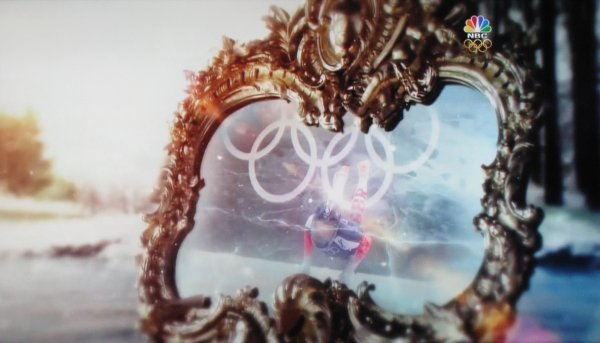
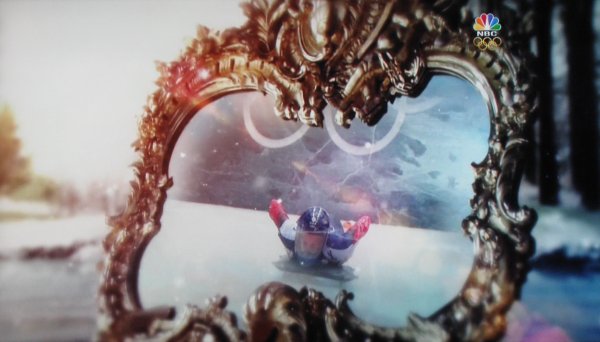
 (
(
 This image is the branding found on the awards platform, on the face of the gold medalist's podium. In the region where the implied 6th ring would appear we see the I of SOCHI. Now, where have we seen an "I" in a capstone? They are not ONE to BUCK that trend, right? The implied 6th Olympic ring is the Eye of Horus. For many examples of this kind of signaling, check out the 42 part series titled,
This image is the branding found on the awards platform, on the face of the gold medalist's podium. In the region where the implied 6th ring would appear we see the I of SOCHI. Now, where have we seen an "I" in a capstone? They are not ONE to BUCK that trend, right? The implied 6th Olympic ring is the Eye of Horus. For many examples of this kind of signaling, check out the 42 part series titled, 

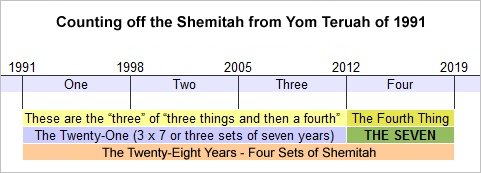 The span of time counted off from that date involves weeks of years on the Sabbatical cycle that has been counting off since this calendar began. These heptadic cycles are known as Shemitah. The celestial sign marked the transition between the 856th and 857th Shemitah. The Shemitah count from the celestial sign to the target set is according to a pattern. Count off three and then we arrive, because the fourth is the target! (John 13:38) The 2nd, 3rd and 4th Shemitah in the count began in 1998, 2005 and 2012, consecutively. Now writing in February 2014, we are about 1 1/2 years in to the target Shemitah!
The span of time counted off from that date involves weeks of years on the Sabbatical cycle that has been counting off since this calendar began. These heptadic cycles are known as Shemitah. The celestial sign marked the transition between the 856th and 857th Shemitah. The Shemitah count from the celestial sign to the target set is according to a pattern. Count off three and then we arrive, because the fourth is the target! (John 13:38) The 2nd, 3rd and 4th Shemitah in the count began in 1998, 2005 and 2012, consecutively. Now writing in February 2014, we are about 1 1/2 years in to the target Shemitah! When, during this Shemitah, will the most important things happen? The most useful insight I've received involves a pattern described in Psalm 90:4. This week of years will match the creation week and the week of millennia in pattern. Since we have a description of the creation week in Genesis and 6 days of the millennial week have already passed into history, we've got two data sets with plenty of information to draw upon. If we compare the creation week with the millennial week, the fact that the seventh day of the week is a Shabbat is perhaps most obvious. How is it then with this Shemitah? The same, because the three are of one pattern. Other passages of scripture validate this as structure for their interpretation is thus provided. The most rich source for learning is biblical history. What were the most important events that marked major transitions? When did they happen? How do they transfer or project into our Shemitah - what will happen at those times?
When, during this Shemitah, will the most important things happen? The most useful insight I've received involves a pattern described in Psalm 90:4. This week of years will match the creation week and the week of millennia in pattern. Since we have a description of the creation week in Genesis and 6 days of the millennial week have already passed into history, we've got two data sets with plenty of information to draw upon. If we compare the creation week with the millennial week, the fact that the seventh day of the week is a Shabbat is perhaps most obvious. How is it then with this Shemitah? The same, because the three are of one pattern. Other passages of scripture validate this as structure for their interpretation is thus provided. The most rich source for learning is biblical history. What were the most important events that marked major transitions? When did they happen? How do they transfer or project into our Shemitah - what will happen at those times?  Three harvests in the annual holy day season represent three resurrection events for three kinds of crops. According to the language of the harvest allegory, the first in sequence will be the barley. That's associated with the Feasts called Pesah and Hag HaMatzot, instituted at the Exodus. Instituted shortly after, the Shavuot primarily celebrates the harvest of wheat. It's also known as the Feast of Weeks because the primary feature is the counting of weeks. The counting of weeks and seven year periods is one primary way the passage of time is accounted on the Lord's calendar. Shavuot is directly tied to the waving of the sheaf during Hag HaMatzot, the Feast of Unleavened Bread, by the counting of 7 weeks. (Another name, Pentecost, means the 50th, another reference to the count.) The grape harvest or Feast of Ingathering comes at the end of the week.
Three harvests in the annual holy day season represent three resurrection events for three kinds of crops. According to the language of the harvest allegory, the first in sequence will be the barley. That's associated with the Feasts called Pesah and Hag HaMatzot, instituted at the Exodus. Instituted shortly after, the Shavuot primarily celebrates the harvest of wheat. It's also known as the Feast of Weeks because the primary feature is the counting of weeks. The counting of weeks and seven year periods is one primary way the passage of time is accounted on the Lord's calendar. Shavuot is directly tied to the waving of the sheaf during Hag HaMatzot, the Feast of Unleavened Bread, by the counting of 7 weeks. (Another name, Pentecost, means the 50th, another reference to the count.) The grape harvest or Feast of Ingathering comes at the end of the week. Occult Olympic Ceremony ritual - from the land of Prometheus. There's some very critical messages for this hour being transmitted!
Occult Olympic Ceremony ritual - from the land of Prometheus. There's some very critical messages for this hour being transmitted! 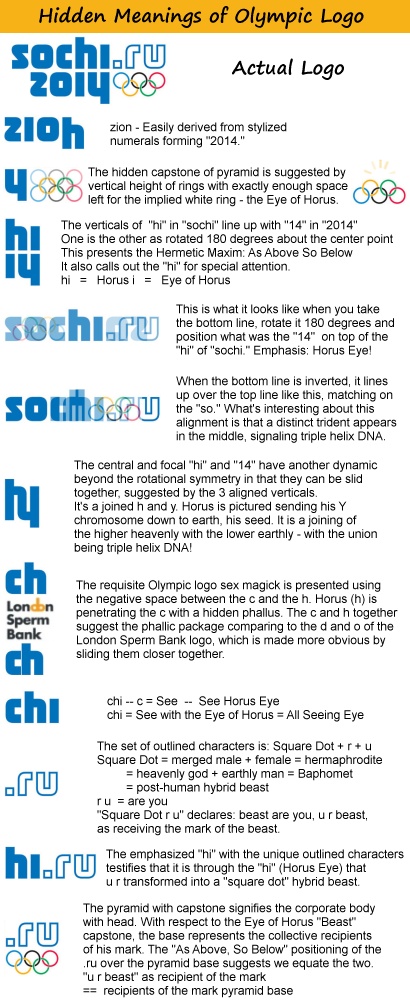

 The kite has streamers for a tail that are the colors of the rainbow. Allusion is made by those colorful streamers to the rainbow bridge, the Bifröst that bridges Asgard, the realm of the gods, and Midgard, the earthly realm. The direction of the Dreamer's journey to Asgard is actually downward, into the underworld Duat (Part 5) via the celestial Silver Gate. The moon is a very popular image used in scenes signaling a Silver Gate transit, and the Dreamer was ascended to the moon.
The kite has streamers for a tail that are the colors of the rainbow. Allusion is made by those colorful streamers to the rainbow bridge, the Bifröst that bridges Asgard, the realm of the gods, and Midgard, the earthly realm. The direction of the Dreamer's journey to Asgard is actually downward, into the underworld Duat (Part 5) via the celestial Silver Gate. The moon is a very popular image used in scenes signaling a Silver Gate transit, and the Dreamer was ascended to the moon. 
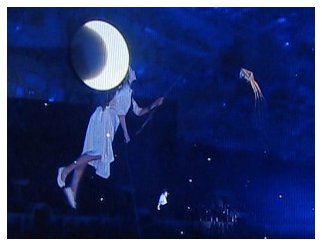


 and
and 
 When I watch the live action Dream sequence and consider what the commentator said, "If you get in a plane in New York," with the full moon in eclipse, what comes vividly to mind is a scene I blogged about back in 2009. This was the 4th of
When I watch the live action Dream sequence and consider what the commentator said, "If you get in a plane in New York," with the full moon in eclipse, what comes vividly to mind is a scene I blogged about back in 2009. This was the 4th of  If that's not familiar, I highly recommend giving it some attention because there's some amazing insight to be gleaned. When I wrote it, I didn't know about the Silver Gate, but that's what's being signaled as she's on her way to the counterfeit ZION. NYC is pictured, and the full moon, and a plane appears. See the toroidal bracelet she wears? Torus ~ Taurus!
If that's not familiar, I highly recommend giving it some attention because there's some amazing insight to be gleaned. When I wrote it, I didn't know about the Silver Gate, but that's what's being signaled as she's on her way to the counterfeit ZION. NYC is pictured, and the full moon, and a plane appears. See the toroidal bracelet she wears? Torus ~ Taurus!